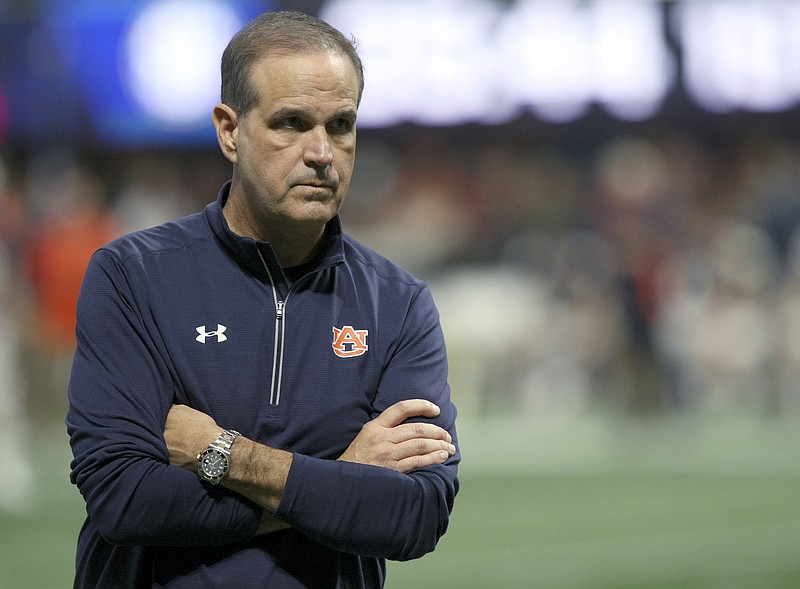With the federal government about to write $1.9 trillion worth of checks - some of which will even reach the pockets of the poor souls who need them most after nearly a year of financial suffering due to the coronavirus pandemic - perhaps discovering that the University of Tennessee football program is going to pay one Kevin Steele close to $900,000 NOT TO WORK isn't that big a deal.
So even if I can't wait to read Steele's upcoming book "How to Become an (Almost) Millionaire in Seven Short Weeks While Doing Nothing," I suppose we're all supposed to just shrug this off as the cost of doing business when you've been as bad at business as UT football has the past decade or so.
But really?
$900,000 for seven weeks of NOTHING?
REALLY?
The powers that be at Tennessee can't find something to assign Steele to do for two years, even if it's checking parking passes at the G-10 garage on game day for the Volunteers, to make him do something other than NOTHING to earn that money?
Not that that's all the school is paying out with no return. The Vols are reportedly paying up to more than $10 million in buyouts and settlements in the wake of firing former football coach Jeremy Pruitt with supposedly just cause.
At least they better hope they can prove it was for just cause in a court of law, instead of being just because he lost 19 of the 35 games he coached, because otherwise - if Pruitt sues on the grounds he didn't break the NCAA rules the school is accusing him of breaking - that $10 million jumps to more than $22 million. Pruitt's buyout was a little more than $12 million without the "just cause" exclusion.
The Vols aren't alone in practicing such voodoo economics. Auburn just shelled out more than $20 million to rid itself of Gus Malzahn. Texas reportedly is on the hook for more than $24 million total to dismiss Tom Herman and his staff this past season.
And who pays for all these mistakes? The fans, in one way or another. Boosters may cover some of the big-ticket costs, but it all trickles down. Every mistake you make in coaching winds up costing you season-ticket sales, concessions, parking, even postseason money.
And Tennessee, according to an AthleticDirectorU.com study last spring, is right at the top of coaching calamities. In a study of what football coaching mistakes cost Power Five conference universities from 2005 to 2019, the Vols ranked No. 1 in most money paid out per year in the years those payouts were made.
In other words, in the seven years during that time that the Vols were paying people to no longer coach, UT was shelling out an average of $2,886,665.00 per year. The next-closest school was Auburn, which was paying people not to coach in 11 of those years, but averaged $1,948,147 during those buyout years, or nearly $1 million a year less than the Vols.
At least new UT athletic director Danny White is helping his former employer, the University of Central Florida, replace both him and new Big Orange football boss Josh Heupel after Tennessee poached the pair away from the Knights. UCF will receive a $3.6 million check from UT for snapping up Heupel and another $2.5 million for White.
That won't completely cover Malzahn's contract of $11.5 million over five years to replace Heupel as UCF's coach, but it will certainly help.
Is there any help for the Vols, however?
Their past three head coaches -Derek Dooley, Butch Jones and Pruitt - were fired before their contracts ended. According to a study done nine years ago by Colorado political science professor E. Scott Adler, this repeated firing of coaches every three, four or five years rarely works.
As one example, he cited Kansas, which fired Mark Mangino and paid him $3 million in severance in 2009. Then the Jayhawks fired Turner Gill two years later and paid him $6 million. Three years after that, they fired Charlie Weis, handing him $5.6 million to disappear. And Weis, according the ADU report, collected a combined $24 million from Kansas and Notre Dame (which fired him in 2009).
To be fair, your football team can't afford to be perceived as a loser in big-time athletics if you don't want your entire athletic department to suffer. But when UT handed Steele a $900,000 check for what wound up being seven weeks of work, something's wrong.
Of course, the Vols did say in his contract that if terminated, he was expected to look for another job, that salary diminishing what UT would still be responsible for from the $900,000.
So you can almost hear Steele during an interview, "Oh, I'd love to be your linebackers coach. All I need is a five-year contract at $500,000 per year, a limo to get to work every day, a penthouse suite with 24-hour room service at your community's finest hotel and a membership at Augusta National. Get me those things, I can be there tomorrow."
Click!
"Hello, hello, anybody there?"
No, the best way for UT to learn from this is for Steele to do nothing, absolutely nothing until the contract runs dry. Just park a houseboat across from Neyland Stadium on game day and wave.
In the meantime, the words of former Arizona assistant AD Steve Kozachick from an Arizona Republic article about being laid off during the pandemic for budgetary reasons at the same time the Wildcats found more than $7 million to rid themselves of Sumlin shouldn't be ignored.
Said Kozachick: "Intercollegiate athletics has lost its soul."
It has certainly lost all semblance of fiscal responsibility.
Contact Mark Wiedmer at mwiedmer@timesfreepress.com. Follow him on Twitter @TFPWeeds.

